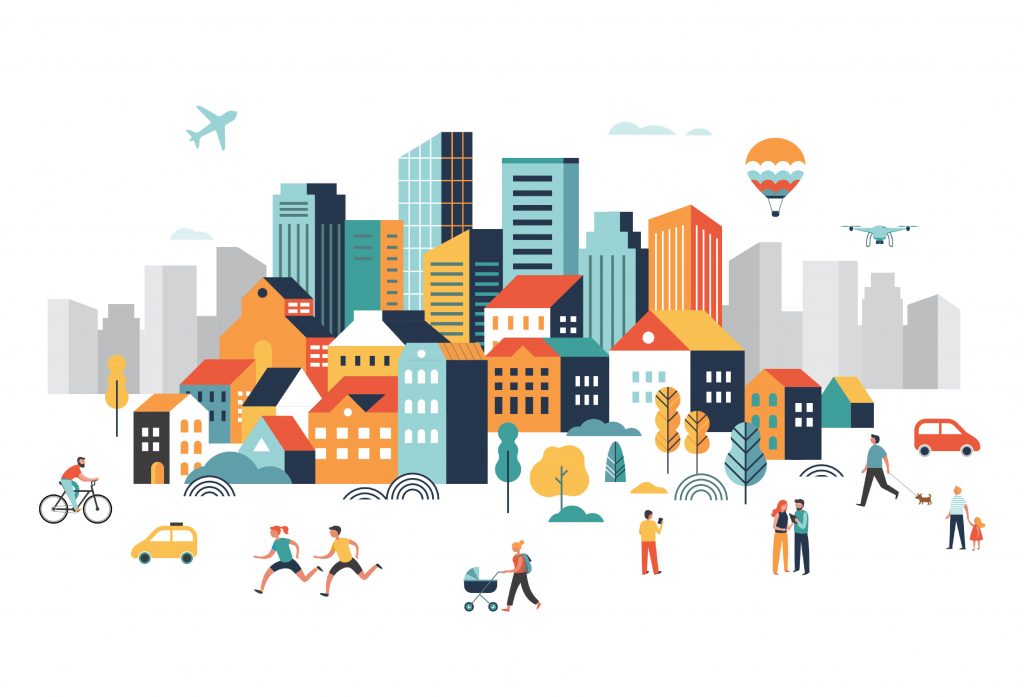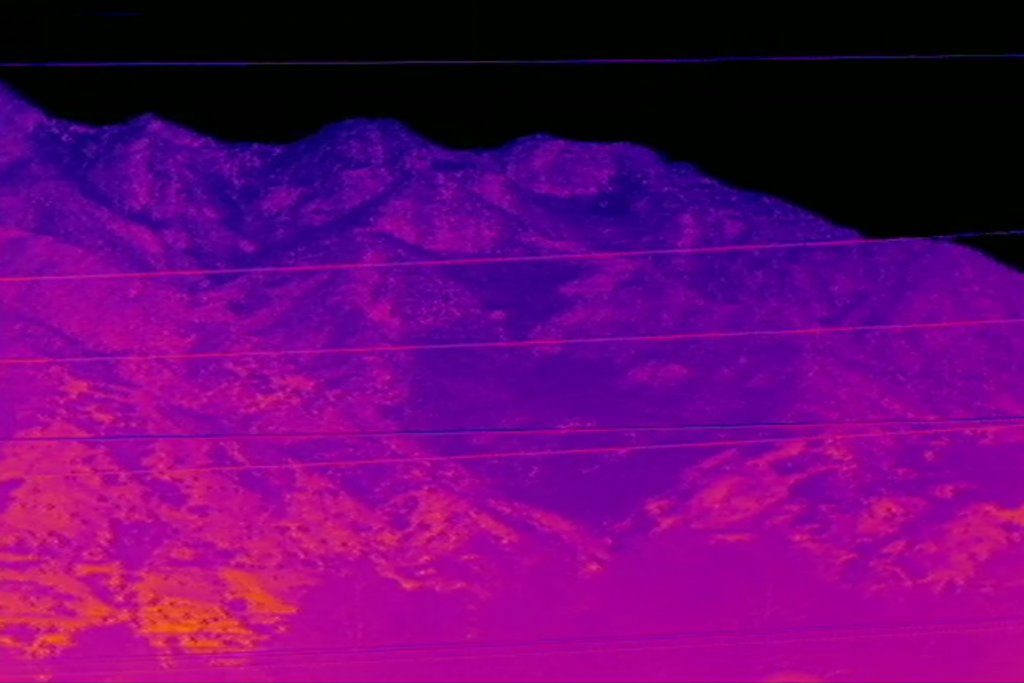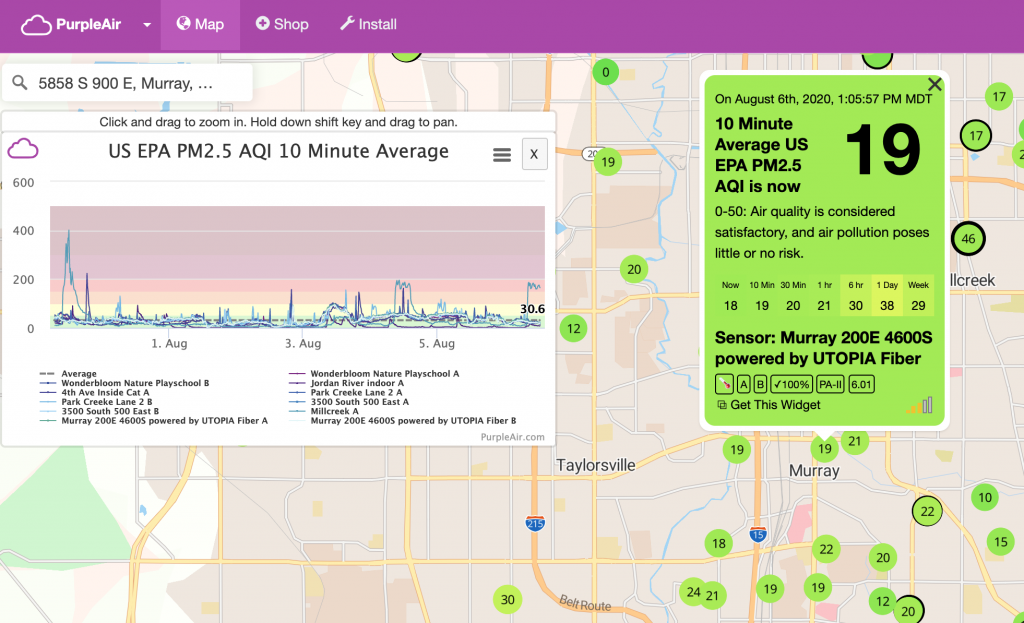UTOPIA Fiber Smart City Technology
August 13th, 2020

Cities around the world are becoming smarter and are using technology to improve the lives of their residents. Smart City technology can transform cities into modern technology hubs by applying analytics and technological solutions to advance and improve city services.
UTOPIA Fiber believes in the future that Smart City technology can enable. This year, we formed a UTOPIA Fiber Smart City Innovation Lab to maintain our Smart City applications and work to create new, innovative technology to beta test and deploy throughout Utah. Here are some of the Smart City applications that we are currently operating:
Fire Detection
The EDWIN Project (Early Detection Wildfire Imaging Network) is a UTOPIA Fiber fire detection initiative that monitors high-risk wildfire areas using fiber-connected thermal-imaging cameras. Wildfire poses a severe risk to both people and property in Utah, where, until recently, reporting methods relied predominately on human detection.
With EDWIN,
cities can automatically detect wildfires and better enforce fire restrictions.
This is a Smart City application that has the potential of dramatically
improving the response times for first responders, saving lives and property.
For more information on this project, check out the project website here: http://edwinproject.org.

Air Quality
Our high-speed, reliable Internet can also help communities monitor and record air quality. UTOPIA Fiber is proud to be the #1 provider of air quality sensors in Utah. Purple Air sensors provide crucial air quality data worldwide and are also free and open to the public. Check out the Purple Air website to see how the air quality in your area is right now.

Wi-Fi Hotspots
UTOPIA Fiber provides public Wi-Fi hot spots in city parks and other public places to give communities access to free public Wi-Fi. The COVID outbreak has shown us how essential these hotspot locations can be for those who don’t have Internet connectivity at home. We currently provide Wi-Fi hotspots in Orem, Layton, West Valley City, Perry, and Centerville and are continuously partnering with cities to create additional Wi-Fi hotspots. Stay tuned for more locations to be announced soon.
Internet Connection for City Buildings
We provide reliable, fast fiber Internet connections to most of our member cities’ central offices and several non-member cities. We deliver fiber connections to City Halls and dedicated internal connections to other city services such as Public Works buildings, Fire, and Police Departments. Using generators and UPS devices in our network locations, we can ensure these essential services have maximum uptime and reliability.
Fiber connections to city halls also enable city meetings to be broadcasted smoothly with a reliable Internet connection, allowing residents to stay up to date with local politics and council meetings without leaving their homes.
Smart City applications of the future
Smart City technology is developing rapidly around the world. With the increased interest in Smart City applications, technologies will continue to evolve and grow. Here are some examples of Smart City technology other cities have employed that our Innovation Lab may one day develop.
- City lighting: London and Quebec have been utilizing smart streetlights that function as Wi-Fi hotspots, charging ports for phones and electric cars, and air quality sensors.
- Connected public transport: sensors in public transit hubs can collect and transfer traffic data to the city. City officials can use this data to electronically inform commuters of how long they will have to wait for the bus or train in real-time.
- Smart Parking: Smart parking can be powered with a high-speed broadband connection. Giving you the ability to park, pay on your phone, and go on with your day.
- Waste management: The Songdo district in South Korea is equipping buildings in highly populated areas with smart garbage collection stations. The stations are equipped with sensors that detect when they are full and automatically send the trash through high-pressure pipes to waste collection centers.
- Smart Grid Energy Tracking: Smart energy grids allow city officials to collect data on and analyze power usage within a city. Using these analytics, they can predict heavy use times and distribute energy accordingly.
- Public Safety: Live crime maps can utilize public safety data to detect and prevent crime patterns. This data can identify high-crime areas and allow police forces to reinforce security in these spots.
If you’re a city official interested in utilizing Smart City applications, contact our Smart City Innovation Lab at communications@utopiafiber.com.
